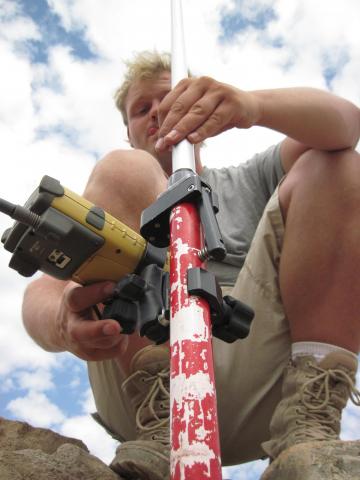
Martin received his B.A. from the State University of Groningen in 2008 with a focus on both European prehistory and interconnections between ancient Egypt and the Near East during the Mediterranean Late Bronze Age. In 2011, he received his M.A. in Archaeology of the Near East and a second M.A. in Egyptian Language and Culture (cum laude), both from Leiden University. His archaeological work re-examined Egyptian Predynastic (4th millennium BCE) chronology through graphic style; his Egyptology research analyzed early 20th century epistemology and the linguistic potential of Predynastic graphics using cognitive linguistics and semiotics. His fieldwork training included projects in Greece (Halos), Italy (Crustumerium) and various CRM projects in the Netherlands.
From 2012-2015 Martin worked as surveyor and digital specialist in the Dutch Institute of the Near East (NINO) expedition to Iraqi Kurdistan (Tell Shemshara, Tell Begum, Gird Bardastee) and in 2015 led a regional survey in the Dukan's dam catchment area. In 2014-16 he also worked with the University of Michigan at El-Kurru, a royal burial ground of Kushite kings during the mid-first millennium BCE in Sudan.
In 2015 Martin entered the archaeology program at Brown University and in 2017 entered the Master's program at Brown's Computer Science department through the competitive and prestigious Open Graduate Program to explore intersections between the two. In 2019 Martin became ABD with an approved project proposal to examine the potential of an unpublished archaeological archive of the Egyptian Predynastic burial grounds at Mesa'eed, excavated in the early 20th century when Egypt was under colonial control.
During his time at Brown, Martin worked at Uronarti and since 2017 has been Assistant Director of excavations at the Amun temple of the Kushite king Taharqo at Sanam, both in Sudan. His further interests include digital, virtual and cyber-archaeology; (post-)colonialism; and writing systems. Since his Leiden days, Martin has taught and lectured widely on these topics, as well as on archaeological methods and theory, drawing from his extensive fieldwork experiences as surveyor and digital archaeologist.
